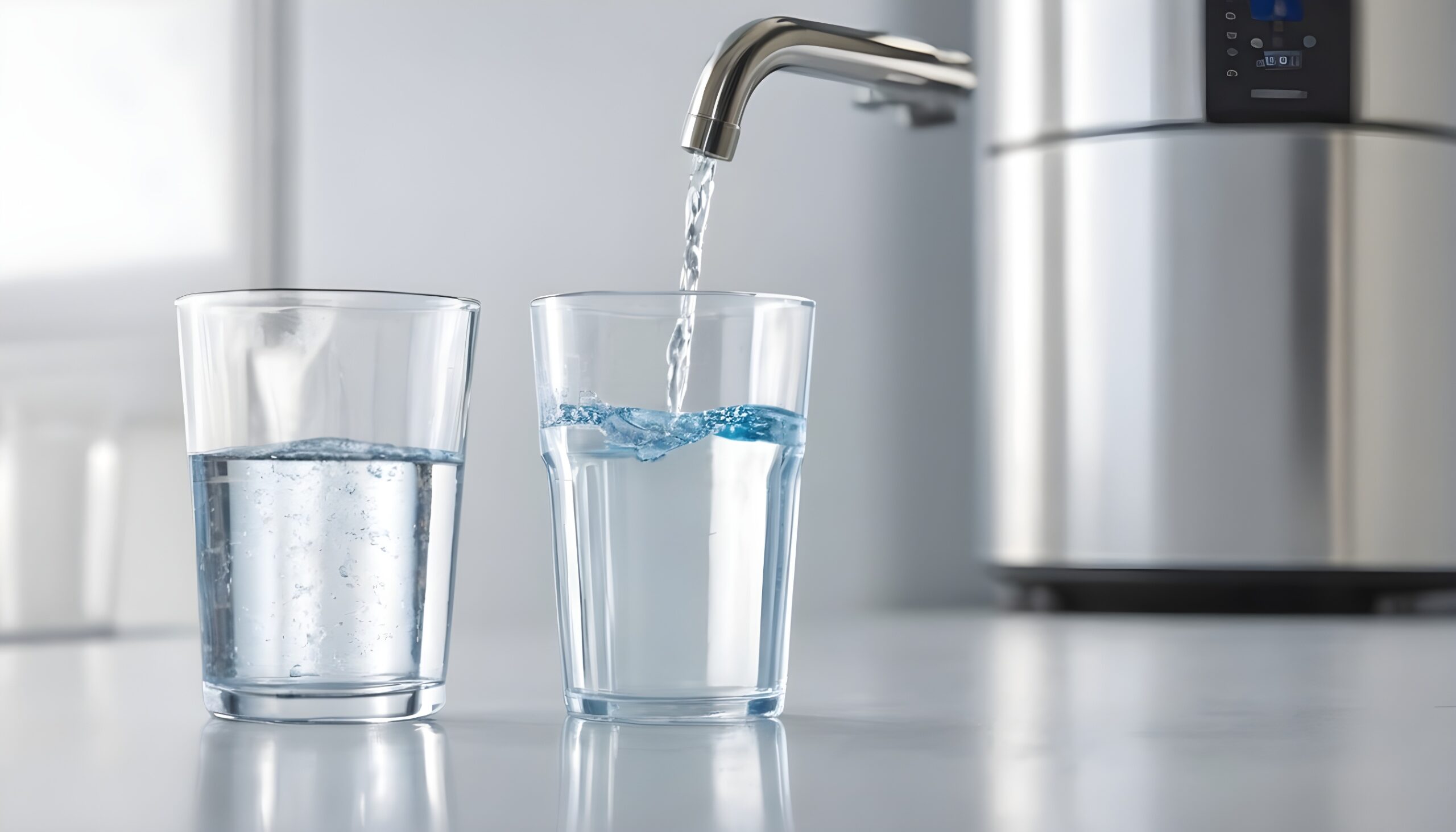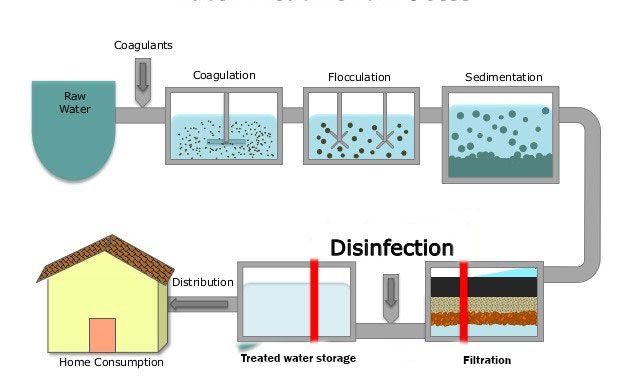The Leading Attributes to Seek in a Water Purification System
The Leading Attributes to Seek in a Water Purification System
Blog Article
Why a Water Purification System Is Important for Clean, Safe Water
Accessibility to tidy, secure water is a basic human right and a foundation of public wellness. A water purification system stands as a vital service to reduce these dangers, ensuring that communities and people can access risk-free alcohol consumption water.
Importance of Clean Water
Access to clean water is a basic requirement for human wellness and wellness. Infected water can lead to serious wellness issues, including gastrointestinal illnesses, cholera, and dysentery, particularly in at risk populaces such as kids and the senior.
Moreover, clean water is essential for sanitation and health practices, which are essential in protecting against the spread of transmittable diseases. Appropriate water supply supports proper cleanliness centers, advertising a much healthier setting. Additionally, access to secure water influences socioeconomic variables, as it makes it possible for neighborhoods to participate in industrial and farming activities, ultimately adding to economic advancement.
In several areas, the lack of clean water intensifies destitution and inequality, additional impeding development towards sustainable advancement goals. Therefore, making sure accessibility to clean water is not just a public health and wellness essential yet additionally a cornerstone for social equity and financial growth. Efforts to improve water high quality and infrastructure have far-reaching advantages, fostering much healthier communities and enhancing lifestyle.

Common Pollutants in Water
Guaranteeing the availability of tidy water is threatened by various impurities that can endanger its safety and security and quality. The presence of microorganisms, such as viruses, germs, and parasites, postures significant health and wellness dangers, specifically in locations doing not have ample cleanliness. These bacteria can lead to waterborne diseases, resulting in serious disease and even fatality.
Chemical contaminants also present an important worry. Hefty metals, including arsenic, mercury, and lead, typically go into water products through commercial discharges or corroded plumbing. These materials can gather in the body with time, resulting in lasting health and wellness problems such as neurological damage and developmental problems.
In addition, agricultural overflow presents chemicals and fertilizers into water systems, which can interfere with environments and negatively effect human wellness. Nitrates, commonly found in plant foods, can trigger serious problems like methemoglobinemia, especially in infants.
Advantages of Water Purification Equipments
Recognizing the critical requirement for risk-free drinking water, water filtration systems offer a myriad of benefits that enhance public health and wellness and environmental sustainability. Primarily, these systems successfully remove damaging pollutants, consisting of germs, viruses, hefty metals, and chemicals, making certain that the water taken in is cost-free from toxins and pathogens. This decrease in impurities significantly decreases the danger of waterborne illness, advertising general community wellness.
In enhancement to health and wellness advantages, water filtration systems add to ecological sustainability by minimizing reliance on mineral water, which commonly produces too much plastic waste. By utilizing a filtration system, families can lower their carbon footprint and contribute to a more sustainable ecological community. Additionally, these systems can enhance the preference and odor of water, making it extra palatable for everyday intake.

Various Kinds Of Filtration Methods

One common technique is reverse osmosis, which utilizes a semi-permeable membrane to separate water from dissolved solids and pollutants. This procedure efficiently reduces pollutants, consisting of heavy metals and chemicals. An additional commonly utilized strategy is ultraviolet (UV) sanitation, which employs UV light to reduce the effects of microorganisms and viruses, making them safe without making use of chemicals.
Turned on carbon filtration is another special info popular method, making use of carbon to adsorb natural substances, chlorine, and undesirable odors, boosting preference and smell top quality. Distillation, a process that includes boiling water and condensing the heavy steam, properly removes minerals and impurities however might call for more energy contrasted to various other methods.
Ion exchange is commonly made use of to soften water by changing calcium and magnesium ions with salt or potassium ions. Each approach has its advantages and constraints, making it necessary to comprehend their performances and effectiveness in resolving particular water top quality concerns - Water Purification System. Inevitably, selecting the suitable purification approach is critical for making sure tidy and secure alcohol consumption water
Picking the Right System
Selecting a suitable water filtration system needs cautious factor to consider of numerous elements, including the certain contaminants present in the water supply, the volume of water required, and the desired filtration approach. Initially, it is critical to carry out a water quality examination to recognize pollutants such as bacteria, hefty steels, or chemical contaminants. This details will lead you in picking a system that effectively targets those details contaminations.
Next, analyze your household's day-to-day water consumption to establish the system's capacity. Systems are readily available in different dimensions, from point-of-use filters for alcohol consumption water to whole-house units that cleanse all see here water entering your home.
Moreover, take into consideration the filtration method that finest fits your requirements. Reverse osmosis is extremely effective for eliminating a large array of impurities, while UV filtration is excellent for removing microbes.
Conclusion
In verdict, the implementation of water filtration systems is essential for ensuring accessibility to secure and clean water. By understanding the significance of tidy water and the advantages of various filtration techniques, neighborhoods can make enlightened decisions to guard their wellness and promote socioeconomic stability.
Acknowledging the vital requirement for secure drinking water, water purification systems provide a myriad of advantages that enhance public health and ecological sustainability.In addition to health and wellness benefits, water purification systems add to ecological sustainability by minimizing dependence on bottled water, which often creates excessive plastic waste. Ultimately, the adoption of water purification systems is an aggressive action towards making sure clean, secure water for Get More Information future generations while safeguarding public health and wellness and the environment.
Choosing a suitable water filtration system calls for mindful consideration of different elements, consisting of the certain contaminants present in the water supply, the quantity of water needed, and the wanted filtration approach.In conclusion, the application of water purification systems is important for guaranteeing accessibility to clean and risk-free water.
Report this page